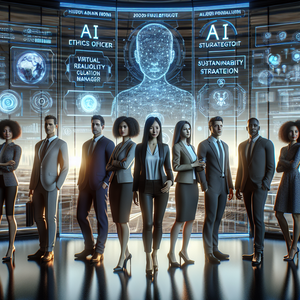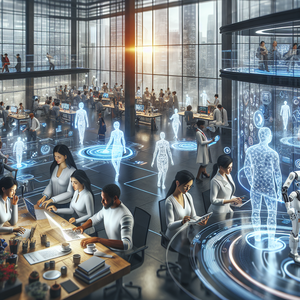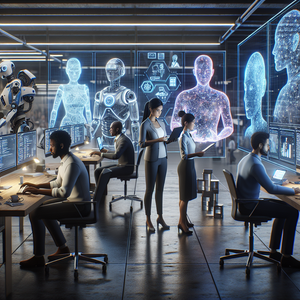
Jobs of the Future: Emerging Leadership Roles and Essential Skills for 2030's Workforce
As we approach 2030, the future of work is set to be redefined by rapid technological advancements, shifting societal priorities, and evolving workplace dynamics. Organizations will face the challenge of navigating a landscape where artificial intelligence (AI), sustainability, and hybrid work models are no longer just trends but foundational elements of operation. The ability to adapt, innovate, and plan strategically will be crucial—not just to survive but to thrive in this dynamic environment.
Job Summaries:
Strategic Foresight Analyst:
- Strategic Foresight Analysts help organizations anticipate and prepare for future disruptions using tools like scenario planning, trend analysis, and risk assessment.
- They ensure long-term resilience by providing critical insights.
- Key skills include data analysis, economics, and strategic management.
Chief of Scenario Planning:
- Chiefs of Scenario Planning develop and manage future scenarios to guide organizational strategies.
- They build adaptable business models, mitigate risks, and identify opportunities.
- Key skills include risk analysis, strategic planning, and cross-functional collaboration.
AI Integration Specialist:
- AI Integration Specialists design and implement AI-driven workflows, ensuring smooth collaboration between humans and AI systems.
- They assess business needs and optimize processes.
- Key skills include machine learning, programming, and data analysis.
Sustainability Strategist:
- Sustainability Strategists align organizational operations with ESG goals.
- Reduce carbon footprints.
- Ensure compliance with environmental standards.
- Key skills include environmental science, ESG principles, and project management.
Workforce Transformation Consultant:
- These consultants guide organizations through workforce changes by redesigning roles, implementing upskilling programs, and integrating digital tools.
- Key skills include HR expertise, organizational development, and workforce analytics.
Digital Ethics Officer:
- Digital Ethics Officers ensure responsible technology use by addressing AI bias, data privacy, and cybersecurity concerns.
- They create ethical frameworks and promote responsible innovation.
- Key skills include law, philosophy, and critical thinking.
Remote Work Coordinator:
- Remote Work Coordinators manage policies for effective remote and hybrid work environments.
- They oversee virtual tools and address employee concerns.
- Key skills include HR expertise, digital collaboration tools, and organizational abilities.
Chief Innovation Officer (CIO):
- CIOs lead innovation initiatives.
- Oversee R&D.
- Cultivate a culture of creativity to maintain competitiveness.
- Key skills include innovation management, strategic thinking, and leadership.
Hybrid Workforce Manager:
- Hybrid Workforce Managers oversee teams split between remote and in-office environments, ensuring equitable access to resources and fostering collaboration.
- Key skills include HR management, communication, and technology adoption.
Risk Mitigation Strategist:
- Risk Mitigation Strategists identify threats and develop strategies to minimize their impact.
- They conduct assessments and design contingency plans.
- Key skills include risk management, finance, and project management.
Human-AI Collaboration Specialist:
- These specialists optimize human-machine collaboration by training employees and analyzing workflows.
- Key skills include AI technologies, change management, and interpersonal skills.
Strategic Workforce Planner:
- Strategic Workforce Planners forecast talent needs
- Design succession plans
- Recommend upskilling initiatives to align workforce capabilities with organizational goals
- Key skills include economics, HR, and business analytics
The workforce of 2030 will demand forward-thinking leaders equipped to navigate a world shaped by technological advancements, sustainability priorities, and hybrid work models. From Strategic Foresight Analysts to AI Integration Specialists, these emerging roles will redefine how organizations operate and compete. To prepare for this future, individuals should focus on developing adaptability, strategic thinking, and technological fluency. Organizations, on the other hand, must invest in leadership development and workforce transformation initiatives. The future isn’t merely about adapting to change—it’s about leading it. By embracing innovation and proactively addressing challenges, we can shape a workforce that thrives amidst uncertainty and opportunity alike.
Explore More Jobs

